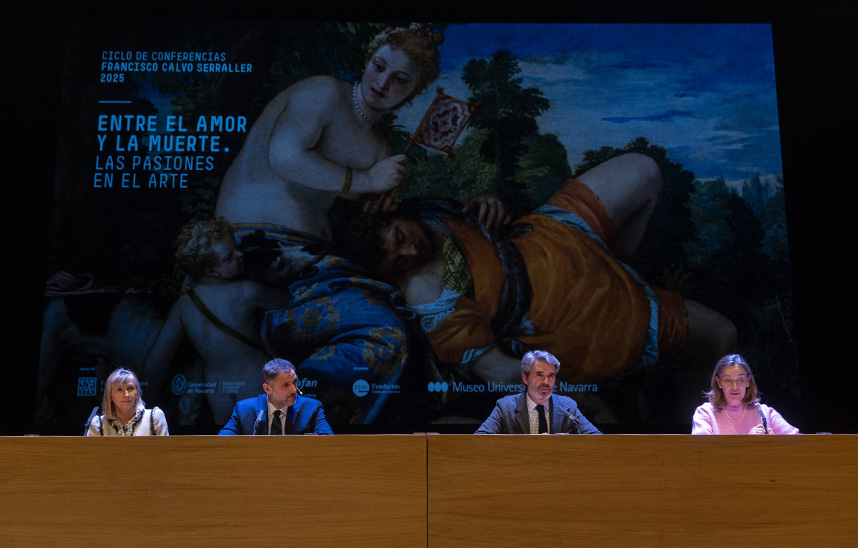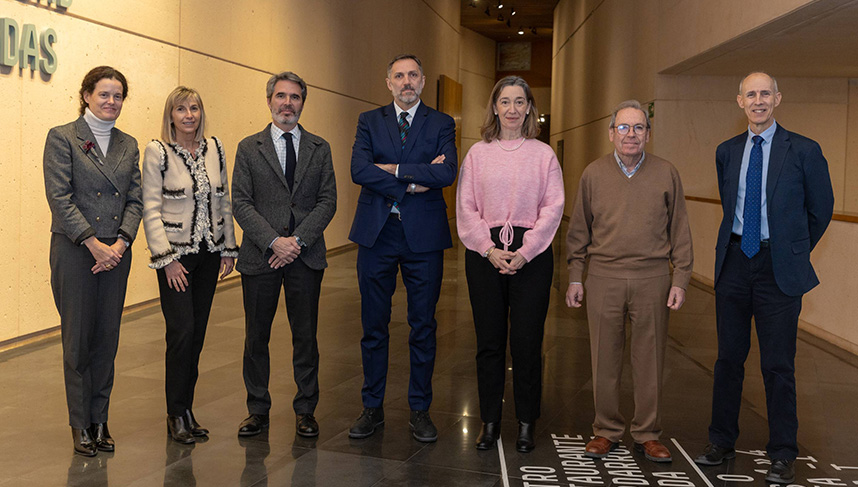258 people attend the opening ceremony of the Museo del Prado's lecture series in Pamplona
Alberto Pancorbo, director of the IX edition, has given the first session of the cycle, which will run until February 5.

For the ninth consecutive year, citizens of Pamplona, students and employees of the University of Navarra have gathered at the Francisco Calvo Serraller lecture series, organized by the Faculty of Philosophy and Letters of the academic center in collaboration with the Friends of the Prado Museum Foundation and with the support of the Diario de Navarra Foundation and the sponsorship of Viscofan.
A total of 258 people attended the inaugural session, given by art historian Alberto Pancorbo, director of this ninth edition. At the beginning of his speech, the expert offered a linguistic analysis of the historical evolution of the term "passion", highlighting how this concept has varied over time. According to him, "the idea we have now about passions is the result of a long and complex history", where this concept has been evolving.
Then, through a selection of works from different periods, Pancorbo has addressed the representation of passions in art, showing how these have been represented differently depending on the time and artistic current. In this sense, he emphasized how in Egyptian art the representation of passions was very limited, since "the aim was not to show an affective relationship, but to endow the works with dynastic meaning". He also explained how Byzantine art, like Romanesque art, was characterized by hieratism and lack of emotional expression. With respect to early Christian art, he stressed that, in its beginnings, the Passion of Christ was not very well represented: "For a people accustomed to triumphant gods, it was difficult to assimilate the image of a martyred God". As he explained, this representation evolved over time and the works began to focus on the wounds of Christ, something that was also reflected in the religious literature of the time.
As he progressed through the chronology, Pancorbo pointed out the change of focus that took place in the Renaissance, when the representation of passions was based on the movements and gestures of the characters. Here, in addition, he stressed the importance of the passions of both the artist and the spectator, a moment in which the figure of the artistic "genius" emerged. The conference has also delved into the Baroque, a period in which the expression of passions became an explicit narrative tool, intended to move the viewer. "In this context the works not only told a story, but sought to provoke an intense emotional reaction," he said. The expert has linked this search for emotion with Romanticism, which broke with the neoclassical academy and claimed passion as the main engine of art.
To conclude, he has analyzed how contemporary works have provoked a complex emotional response in the viewer and how avant-garde movements tried to distance themselves from passions to focus on abstraction.
The second session of the series will take place next Wednesday , January 22. It will be given by Marta Poza Yagüe, professor of Art History at the Complutense University, and will focus on images of life and death in medieval art. On Wednesday, January 29, David García Cueto, Head of the Department of Italian and French Painting until 1800 at the Prado Museum, will deal with desire in 17th century painting. The series will conclude on Wednesday , February 5 with a lecture by Noelia García Pérez, professor of Art History at the University of Murcia, who will talk about the look of love in artistic creation.
Tickets for the following sessions can be purchased on the website of the series and on the website of the Museo Universidad de Navarra you can purchase tickets for the following sessions.
